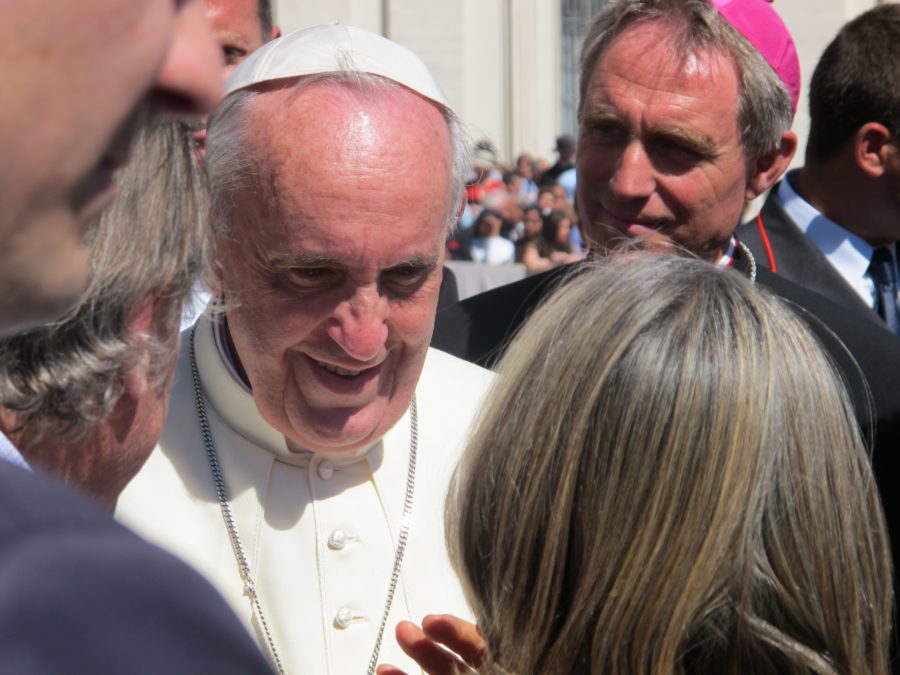Pope Francis turned 80 on 17 December. Messages poured in from around the world (70,000 emails) and the Pope celebrated with 8 homeless people. Much has been written about the Pope’s achievements. He is on a mission to change the Church, making it more global, ecumenical, open to dialogue with other faiths, focussed on the poor and needy, and pastoral. He is also on a mission to bring about political change on issues such as climate change, consumerism, welcoming migrants and refugees, and ending modern slavery and human trafficking. He has a reform agenda within the Church too, changing the Curia to meet present challenges, empowering bishops’ conferences and championing financial probity.
But Pope Francis is remarkable not just for his extensive reform agenda, but also for how he is campaigning for reform. I do not mean his direct style of address (although I very much enjoyed reading his talk on 15 sins of the Curia from 2014). Nor do I mean the way he handles the media, using visits and meetings to highlight the issues of concern to him. Other world leaders do these things too. It seems to me that his application of Jesuit and Christian concepts to the role of the Pope is something that is new.
Let me explain. In my short time in Rome, reading Pope Francis’s speeches and homilies, a number of words crop up regularly, that seem to have very specific meanings. By using them, Pope Francis seems to be giving his audience not just his views on major issues, but also a toolkit to be able to address those issues themselves.
The first of those words is discernment, which I understand to mean gathering evidence, taking advice, and reflecting on what is the right course of action, either individually or collectively. As an archbishop here in Rome explained to me, the idea is rooted in the Bible e.g. Hebrews chapter 5 verse 14, which says ‘But strong meat belongeth to them that are of full age, even those who by reason of use have their senses exercised to discern both good and evil.’ It seems the Jesuits have made extensive use of the concept, using collective discernment to choose their new leader in October. I like the idea that good judgement is something that grows with use, a sort of exercising of the moral senses. Pope Francis has encouraged members of the Church at all levels to use discernment to decide the right course of action in dealing with tricky issues.
The second word that I could not miss this year was mercy. At first I was a little confused by this concept, taking it to mean showing forgiveness to someone that one has the power to harm. But Pope Francis seems to use the word to mean showing compassion to the poor and needy – as in his exhortations to help refugees and migrants, and to support prisoners – and also in the sense of showing tolerance, not judging others. The Year of Mercy demonstrated the importance he attaches to this concept.
There are other ideas that Pope Francis uses, perhaps less often, but no less interestingly. Addressing the Jesuits’ General Congregation in October he talked of liking Saint Ignatius’ way of seeing everything – except for what is absolutely essential – as in fieri, or constantly developing. I like this idea that our understanding should develop as the world around us changes.
Finally, in the same speech, Pope Francis talked of the need to be aprovechiamento, a Spanish word meaning ‘of use’. Pope Francis defined it as meaning ‘to leave an imprint or a mark in history, especially in the lives of the smallest.’
So favourite words that exhort us to reflect and identify the right course, show understanding for others, develop our ideas as circumstances change, and make sure we what we do is of benefit. This sounds like a good recipe for action to me.

